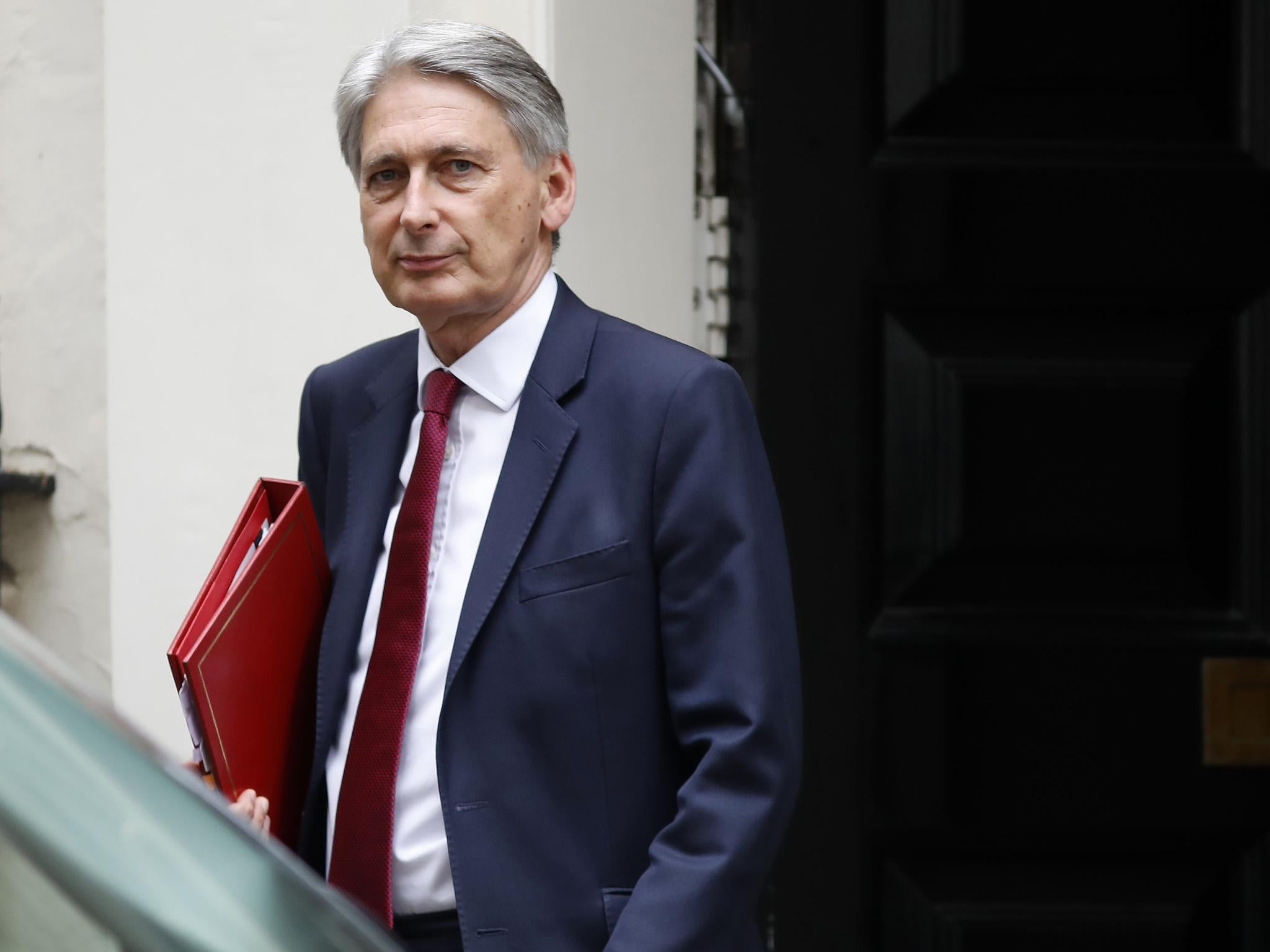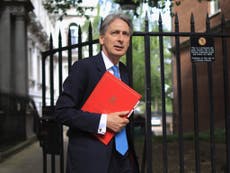After Theresa May gave away all the good news, here's how Philip Hammond can make a splash with the Budget
He may struggle to convince us that the era of austerity is over. Cabinet ministers are queueing up with demands – on police, schools, defence – but privately they don’t expect the Hammond to turn on the taps


There is a new outbreak in Downing Street. But pre-Budget tension between a chancellor and prime minister is nothing new. “You’ve stolen my f****** Budget,” Gordon Brown told Tony Blair in 2000 after the prime minister announced on Sunday morning TV that the Labour government would pump billions into the NHS to raise health spending to the European average.
It is difficult to imagine Philip Hammond saying those words to Theresa May. But he would be forgiven for thinking them. In June, May announced an extra £20bn a year for the NHS by 2023, pre-empting the government-wide spending review the chancellor will unveil in his 29 October Budget. Then, at last week’s Tory conference, May performed the first lord of the Treasury's old trick of nicking the Budget's good news. She announced that petrol duty would be frozen for the ninth year running and that councils will be allowed to build more homes. Hammond can’t even resort to some winter sticking plaster for the ailing social care sector: Matt Hancock, the health secretary, announced an extra £240m for that.
The danger for the chancellor is that he is left with the bad news. He’ll probably have something up his sleeve on housing, perhaps this week’s proposal to encourage landlords to sell to tenants from Onward, the centre-right think tank. A “Google tax” aimed at the internet giants would be popular. But Hammond might have to raise personal taxation, or at least rip up the Tories’ 2017 manifesto pledge to increase the personal allowance to £12,500 and the threshold for the 40p tax band to £50,000, both by 2020. I can imagine May will not be happy when Hammond tells her the move is needed to fund her NHS cash injection. As in the Brexit negotiations, she wants to have her cake and eat it.
Crucially, the chancellor may struggle to convince us that the era of austerity is over, as May declared with a flourish at her conference. Cabinet ministers are queueing up with demands – on police, schools, defence – but privately they don’t expect the Hammond to turn on the taps. To say that the Treasury was unhappy about May’s declaration is an understatement.
What Hammond should do is to raise taxes and make them fairer at the same time. For example, he could replace council tax with a property tax. A 0.5 per cent annual levy on the value of the property would raise £1.6bn more than the council tax, according a report by the centre-left IPPR think tank yesterday. With governments afraid of a backlash, the valuations used for council tax have not been touched since 1992. Average house prices have increased four times faster than average full-time earnings since 1997.
The IPPR believes a property tax would capture some of these gains, while dampening house price inflation. Housing is under-taxed compared to other assets, it argues, contributing to growing wealth inequality between homeowners and others.
Carys Roberts, senior economist at IPPR and a co-author of its report, said: “The vast majority of households would benefit from the tax change, and estimates suggest that for those in the bottom half of income distribution, disposable incomes would rise.”
True, Tory MPs would not like it and no doubt threaten to derail it. A property tax would show that May is serious about having a post-Brexit domestic agenda, that her drive to win over Labour voters is more than mere rhetoric. And that she is different to David Cameron, who blocked Liberal Democrat plans for a mansion tax during the coalition because it would hit Tory donors.
Hammond should also go local in his spending review. The Tories have not devolved power but they have certainly devolved the cuts. Central government grants to town halls have been reduced by 49 per cent since 2010, a much bigger fall than any Whitehall department. Privately, Treasury officials are amazed that local authorities have kept the show on the road. But their reserve kitties are now running dry and, with the fast-rising demand for social care soaking up a huge chunk of their budgets, they have hiked charges for services, another stealth tax passed sneakily down the line from Whitehall.
Councils can no longer do more with less and a real crunch is coming; Tory-controlled Northamptonshire County Council, which approved £65m of cuts yesterday after running out of money, is the tip of a very big iceberg. A Cambridge University study found this week that council cuts have increased deprivation in England’s poorest areas.
Local authorities have proved a very convenient whipping boy for the Tories. But this trick is now past its sell-by date. How the government treats councils when the spending review is finalised next year will be the real test of whether austerity is over.


Join our commenting forum
Join thought-provoking conversations, follow other Independent readers and see their replies